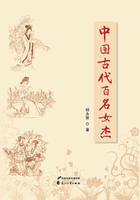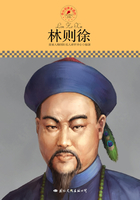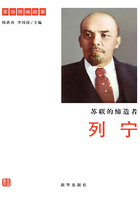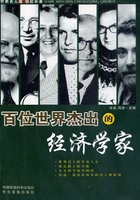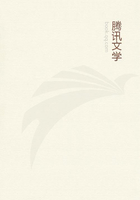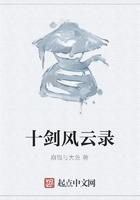1798
Bonaparte's departure from Paris-His return-The Egyptian expedition projected-M. de Talleyrand-General Desaix-Expedition against Malta-Money taken at Berne-Bonaparte's ideas respecting the East-Monge-Non-influence of the Directory-Marriages of Marmont and La Valette-Bonaparte's plan of colonising Egypt-His camp library-Orthographical blunders-Stock of wines-Bonaparte's arrival at Toulon-Madame Bonaparte's fall from a balcony-Execution of an old man-Simon.
Bonaparte left Paris for the north on the 10th of February 1798-but he received no order, though I have seen it everywhere so stated, to go there-"for the purpose of preparing the operations connected with the intended invasion of England." He occupied himself with no such business, for which a few days certainly would not have been sufficient. His journey to the coast was nothing but a rapid excursion, and its sole object was to enable him to form an opinion on the main point of the question. Neither did he remain absent several weeks, for the journey occupied only one. There were four of us in his carriage-himself, Lannes, Sulkowsky, and I. Moustache was our courier. Bonaparte was not a little surprised on reading, in the 'Moniteur' of the 10th February, an article giving greater importance to his little excursion than it deserved.
"General Bonaparte," said the 'Moniteur', "has departed for Dunkirk with some naval and engineer officers. They have gone to visit the coasts and prepare the preliminary operations for the descent [upon England]. It may be stated that he will not return to Rastadt, and that the close of the session of the Congress there is approaching."
Now for the facts. Bonaparte visited Etaples, Ambleteuse, Boulogne, Calais, Dunkirk, Furnes, Niewport, Ostend, and the Isle of Walcheren. He collected at the different ports all the necessary information with that intelligence and tact for which he was so eminently distinguished. He questioned the sailors, smugglers, and fishermen, and listened attentively to the answers he received.
We returned to Paris by Antwerp, Brussels, Lille, and St. Quentin. The object of our journey was accomplished when we reached the first of these towns. "Well, General," said I, "what think you of our journey? Are you satisfied? For my part, I confess I entertain no great hopes from anything I have seen and heard." Bonaparte immediately answered, "It is too great a chance. I will not hazard it. I would not thus sport with the fate of my beloved France." On hearing this I already fancied myself in Cairo!
On his return to Paris Bonaparte lost no time in setting on foot the military and scientific preparations for the projected expedition to the banks of the Nile, respecting which such incorrect statements have appeared. It had long occupied his thoughts, as the following facts will prove.
In the month of August 1797 he wrote "that the time was not far distant when we should see that, to destroy the power of England effectually, it would be necessary to attack Egypt." In the same month he wrote to Talleyrand, who had just succeeded Charles de Lacroix as Minister of Foreign Affairs, "that it would be necessary to attack Egypt, which did not belong to the Grand Signior." Talleyrand replied, "that his ideas respecting Egypt were certainly grand, and that their utility could not fail to be fully appreciated." He concluded by saying he would write to him at length on the subject.
History will speak as favourably of M. de Talleyrand as his contemporaries have spoken ill of him. When a statesman, throughout a great, long, and difficult career, makes and preserves a number of faithful friends, and provokes but few enemies, it must be acknowledged that his character is honourable and his talent profound, and that his political conduct has been wise and moderate. It is impossible to know M. de Talleyrand without admiring him. All who have that advantage, no doubt, judge him as I do.
In the month of November of the same year Bonaparte sent Poussielgue, under the pretence of inspecting the ports of the Levant, to give the finishing stroke to the meditated expedition against Malta.
General Desaix, whom Bonaparte had made the confidant of all his plans at their interview in Italy after the preliminaries of Leoben, wrote to him from Affenbourg, on his return to Germany, that he regarded the fleet of Corfu with great interest. "If ever," said he, "it should be engaged in the grand enterprises of which I have heard you speak, do not, I beseech you, forget me." Bonaparte was far from forgetting him.
The Directory at first disapproved of the expedition against Malta, which Bonaparte had proposed long before the treaty of Campo-Formio was signed. The expedition was decided to be impossible, for Malta had observed strict neutrality, and had on several occasions even assisted our ships and seamen. Thus we had no pretext for going to war with her. It was said, too, that the legislative body would certainly not look with a favourable eye on such a measure. This opinion, which, however, did not last long, vexed Bonaparte. It was one of the disappointments which made him give a rough welcome to Bottot, Barras' agent, at the commencement of October 1797.
In the course of an animated conversation he said to Bottot, shrugging his shoulders, "Mon Dieu! Malta is for sale!" Sometime after he himself was told that "great importance was attached to the acquisition of Malta, and that he must not suffer it to escape." At the latter end of September 1797 Talleyrand, then Minister of Foreign Affairs, wrote to him that the Directory authorized him to give the necessary orders to Admiral Brueys for taking Malta. He sent Bonaparte some letters for the island, because Bonaparte had said it was necessary to prepare the public mind for the event.
Bonaparte exerted himself night and day in the execution of his projects. I never saw him so active. He made himself acquainted with the abilities of the respective generals, and the force of all the army corps. Orders and instructions succeeded each other with extraordinary rapidity. If he wanted an order of the Directory he ran to the Luxembourg to get it signed by one of the Directors. Merlin de Douai was generally the person who did him this service, for he was the most constant at his post. Lagarde, the Secretary-General, did not countersign any document relative to this expedition, Bonaparte not wishing him to be informed of the business. He transmitted to Toulon the money taken at Berne, which the Directory had placed at his disposal. It amounted to something above 3,000,000 francs. In those times of disorder and negligence the finances were very badly managed. The revenues were anticipated and squandered away, so that the treasury never possessed so large a sum as that just mentioned.
It was determined that Bonaparte should undertake an expedition of an unusual character to the East. I must confess that two things cheered me in this very painful interval; my friendship and admiration for the talents of the conqueror of Italy, and the pleasing hope of traversing those ancient regions, the historical and religious accounts of which had engaged the attention of my youth.
It was at Passeriano that, seeing the approaching termination of his labours in Europe, he first began to turn serious attention to the East. During his long strolls in the evening in the magnificent park there he delighted to converse about the celebrated events of that part of the world, and the many famous empires it once possessed. He used to say, "Europe is a mole-hill. There have never been great empires and revolutions except in the East, where there are 600,000,000 men." He considered that part of the world as the cradle of all religious, of all metaphysical extravagances. This subject was no less interesting than inexhaustible, and he daily introduced it when conversing with the generals with whom he was intimate, with Monge, and with me.
Monge entirely concurred in the General-in-Chief's opinions on this point; and his scientific ardour was increased by Bonaparte's enthusiasm. In short, all were unanimously of one opinion. The Directory had no share in renewing the project of this memorable expedition, the result of which did not correspond with the grand views in which it had been conceived. Neither had the Directory any positive control over Bonaparte's departure or return. It was merely the passive instrument of the General's wishes, which it converted into decrees, as the law required. He was no more ordered to undertake the conquest of Egypt than he was instructed as to the plan of its execution. Bonaparte organised the army of the East, raised money, and collected ships; and it was he who conceived the happy idea of joining to the expedition men distinguished in science and art, and whose labours have made known, in its present and past state, a country, the very name of which is never pronounced without exciting grand recollections.
Bonaparte's orders flew like lightning from Toulon to Civita Vecchia. With admirable precision he appointed some forces to assemble before Malta, and others before Alexandria. He dictated all these orders to me in his Cabinet.
In the position in which France stood with respect to Europe, after the treaty of Campo-Formio, the Directory, far from pressing or even facilitating this expedition, ought to have opposed it. A victory on the Adige would have been far better for France than one on the Nile. From all I saw, I am of opinion that the wish to get rid of an ambitious and rising man, whose popularity excited envy, triumphed over the evident danger of removing, for an indefinite period, an excellent army, and the possible loss of the French fleet. As to Bonaparte, he was well assured that nothing remained for him but to choose between that hazardous enterprise and his certain ruin. Egypt was, he thought, the right place to maintain his reputation, and to add fresh glory to his name.
On the 12th of April 1798 he was appointed General-in-Chief of the army of the East.
It was about this time that Marmont was married to Mademoiselle Perregaux; and Bonaparte's aide de camp, La Valletta, to Mademoiselle Beauharnais.
-[Sir Walter Scott informs us that Josephine, when she became Empress, brought about the marriage between her niece and La Vallette. This is another fictitious incident of his historical romance.-Bourrienne.]
Shortly before our departure I asked Bonaparte how long he intended to remain in Egypt. He replied, "A few months, or six years: all depends on circumstances. I will colonise the country. I will bring them artists and artisans of every description; women, actors, etc. We are but nine-and-twenty now, and we shall then be five-and-thirty. That is not an old age. Those six years will enable me, if all goes well, to get to India. Give out that you are going to Brest. Say so even to your family." I obeyed, to prove my discretion and real attachment to him.
Bonaparte wished to form a camp library of cabinet editions, and he gave me a list of the books which I was to purchase. This list is in his own writing, and is as follows:
CAMP LIBRARY.
1. ARTS AND SCIENCE.-Fontenelle's Worlds, 1 vol. Letters to a German Princess, 2 vols. Courses of the Normal School, 6 vols. The Artillery Assistant, 1 vol. Treatise on Fortifications, 3 vols. Treatise on Fireworks, 1 vol.
2. GEOGRAPHY AND TRAVELS.-Barclay's Geography, 12 vols. Cook's Voyages, 3 vols. La Harpe's Travels, 24 vols.
3. HISTORY.-Plutarch, 12 vols. Turenne, 2 vols. Condé, 4 vols. Villars, 4 vols. Luxembourg, 2 vols. Duguesclin, 2 vols. Saxe, 3 vols. Memoirs of the Marshals of France, 20 vols. President Hainault, 4 vols. Chronology, 2 vols. Marlborough, 4 vols. Prince Eugène, 6 vols. Philosophical History of India, 12 vols. Germany, 2 vols. Charles XII., 1 vol. Essay on the Manners of Nations, 6 vols. Peter the Great, 1 vol. Polybius, 6 vols. Justin, 2 vols. Arrian, 3 vols. Tacitus, 2 vols. Titus Livy, Thucydides, 2 vols. Vertot, 4 vols. Denina, 8 vols. Frederick II, 8 vols.
4. POETRY.-Osaian, 1 vol. Tasso, 6 vols. Ariosto, 6 vols. Homer, 6 vols. Virgil, 4 vols. The Henriade, 1 vol. Telemachus, 2 vols. Les Jardin, 1 vol. The Chefs-d'Oeuvre of the French Theatre, 20 vols. Select Light Poetry, 10 vols. La Fontaine.
5. ROMANCE.-Voltaire, 4 vols. Heloise, 4 vols. Werther, 1 vol. Marmontel, 4 vols. English Novels, 40 vols. Le Sage, 10 vols. Prevost, 10 vols.
6. POLITICS AND MORALS.-The Old Testament. The New Testament. The Koran. The Vedan. Mythology. Montesquieu. The Esprit des Lois.
It will be observed that he classed the books of the religious creeds of nations under the head of "politics."
The autograph copy of the above list contains some of those orthographical blunders which Bonaparte so frequently committed. Whether these blunders are attributable to the limited course of instruction he received at Brienne, to his hasty writing, the rapid flow of his ideas, or the little importance he attached to that indispensable condition of polite education, I know not. Knowing so well as he did the authors and generals whose names appear in the above list, it is curious that he should have written Ducecling for Duguesclin, and Ocean for Ossian. The latter mistake would have puzzled me not a little had I not known his predilection for the Caledonian bard.
Before his departure Bonaparte laid in a considerable stock of Burgundy. It was supplied by a man named James, of Dijon. I may observe that on this occasion we had an opportunity of ascertaining that good Burgundy, well racked off, and in casks hermetically sealed, does not lose its quality on a sea voyage. Several cases of this Burgundy twice crossed the desert of the Isthmus of Suez on camels' backs. We brought some of it back with us to Fréjus, and it was as good as when we departed. James went with us to Egypt.
During the remainder of our stay in Paris nothing occurred worthy of mention, with the exception of a conversation between Bonaparte and me some days before our departure for Toulon. He went with me to the Luxembourg to get signatures to the official papers connected with his expedition. He was very silent. As we passed through the Rue Sainte Anne I asked him, with no other object than merely to break a long pause, whether he was still determined to quit France. He replied, "Yes: I have tried everything. They do not want me (probably alluding to the office of Director). I ought to overthrow them, and make myself King; but it will not do yet. The nobles will never consent to it. I have tried my ground. The time is not yet come. I should be alone. But I will dazzle them again." I replied, "Well, we will go to Egypt;" and changed the conversation.
-[Lucien and the Bonapartists of course deny that Napoleon wished to become Director, or to seize on power at this time; see Lucien, tome 1. p. 154. Thiers (vol. v. p. 257) takes the same view. Lanfrey (tome i. p. 363) believes Napoleon was at last compelled by the Directory to start and he credits the story told by Desaix to Mathieu Dumas, or rather to the wife of that officer, that there was a plot to upset the Directory, but that when all was ready Napoleon judged that the time was not ripe. Lanfrey, however, rather enlarges what Dumas says; see Dumas, tome iii. p. 167. See also the very remarkable conversation of Napoleon with Miot de Melito just before leaving Italy for Rastadt: "I cannot obey any longer. I have tasted the pleasures of command, and I cannot renounce it. My decision is taken. If I cannot be master, I shall quit France." (Miot, tome i. p. 184).]
The squabble with Bernadotte at Vienna delayed our departure for a fortnight, and might have had the most disastrous influence on the fate of the squadron, as Nelson would most assuredly have waited between Malta and Sicily if he had arrived there before us.'
-[Sir Walter Scott, without any authority, states that, at the moment of his departure, Bonaparte seemed disposed to abandon the command of an expedition so doubtful and hazardous, and that for this purpose he endeavoured to take advantage of what had occurred at Vienna. This must be ranked in the class of inventions, together with Barras mysterious visit to communicate the change of destination, and also the ostracism and honourable exile which the Directory wished to impose on Bonaparte.-Bourrienne.]
It is untrue that he ever entertained the idea of abandoning the expedition in consequence of Bernadotte's affair. The following letter to Brueys, dated the 28th of April 1798, proves the contrary:
Some disturbances which have arisen at Vienna render my presence in Paris necessary for a few days. This will not change any of the arrangements for the expedition. I have sent orders by this courier for the troops at Marseilles to embark and proceed to Toulon. On the evening of the 30th I will send you a courier with orders for you to embark and proceed with the squadron and convoy to Genoa, where I will join you.
The delay which this fresh event has occasioned will, I imagine, have enabled you to complete every preparation.
We left Paris on the 3d of May 1798. Ten days before Bonaparte's departure for Egypt a prisoner (Sir Sidney Smith) escaped from the Temple who was destined to contribute materially to his reverses. An escape so unimportant in itself afterwards caused the failure of the most gigantic projects and daring conceptions. This escape was pregnant with future events; a false order of the Minister of Police prevented the revolution of the East!
We were at Toulon on the 8th. Bonaparte knew by the movements of the English that not a moment was to be lost; but adverse winds detained us ten days, which he occupied in attending to the most minute details connected with the fleet.
Bonaparte, whose attention was constantly occupied with his army, made a speech to the soldiers, which I wrote to his dictation, and which appeared in the public papers at the time. This address was followed by cries of "The Immortal Republic for ever!" and the singing of national hymns.
Those who knew Madame Bonaparte are aware that few women were more amiable and fascinating. Bonaparte was passionately fond of her, and to enjoy the pleasure of her society as long as possible he brought her with him to Toulon. Nothing could be more affecting than their parting. On leaving Toulon Josephine went to the waters of Plombieres. I recollect that during her stay at Plombieres she incurred great danger from a serious accident. Whilst she was one day sitting at the balcony of the hotel, with her suite, the balcony suddenly gave way, and all the persons in it fell into the street. Madame Bonaparte was much hurt, but no serious consequences ensued.
Bonaparte had scarcely arrived at Toulon when he heard that the law for the death of emigrants was enforced with frightful rigour; and that but recently an old man, upwards of eighty, had been shot. Indignant at this barbarity, he dictated to me, in a tone of anger, the following letter:
HEADQUARTERS TOULON,
27th Floréal, year VI. (16th May 1798).
BONAPARTE, MEMBER OF THE NATIONAL INSTITUTE, TO THE MILITARY COMMISSIONERS OF THE NINTH DIVISION, ESTABLISHED BY THE LAW OF THE 19TH FRUCTIDOR.
I have learned, citizens, with deep regret, that an old man, between seventy and eighty years of age, and some unfortunate women, in a state of pregnancy, or surrounded with children of tender age, have been shot on the charge of emigration.
Have the soldiers of liberty become executioners? Can the mercy which they have exercised even in the fury of battle be extinct in their hearts?
The law of the 19th Fructidor was a measure of public safety. Its object was to reach conspirators, not women and aged men.
I therefore exhort you, citizens, whenever the law brings to your tribunals women or old men, to declare that in the field of battle you have respected the women and old men of your enemies.
The officer who signs a sentence against a person incapable of bearing arms is a coward.
(Signed) BONAPARTE.
This letter saved the life of an unfortunate man who came under the description of persons to whom Bonaparte referred. The tone of this note shows what an idea he already entertained of his power. He took upon him, doubtless from the noblest motives, to step out of his way to interpret and interdict the execution of a law, atrocious, it is true, but which even in those times of weakness, disorder, and anarchy was still a law. In this instance, at least, the power of his name was nobly employed. The letter gave great satisfaction to the army destined for the expedition.
A man named Simon, who had followed his master in emigration, and dreaded the application of the law, heard that I wanted a servant. He came to me and acknowledged his situation. He suited me, and I hired him. He then told me he feared he should be arrested whilst going to the port to embark. Bonaparte, to whom I mentioned the circumstance, and who had just given a striking proof of his aversion to these acts of barbarity, said to me in a tone of kindness, "Give him my portfolio to carry, and let him remain with you." The words "Bonaparte, General-in-Chief of the Army of the East," were inscribed in large gold letters on the green morocco. Whether it was the portfolio or his connection with us that prevented Simon from being arrested I know not; but he passed on without interruption. I reprimanded him for having smiled derisively at the ill humour of the persons appointed to arrest him. He served me faithfully, and was even sometimes useful to Bonaparte.

